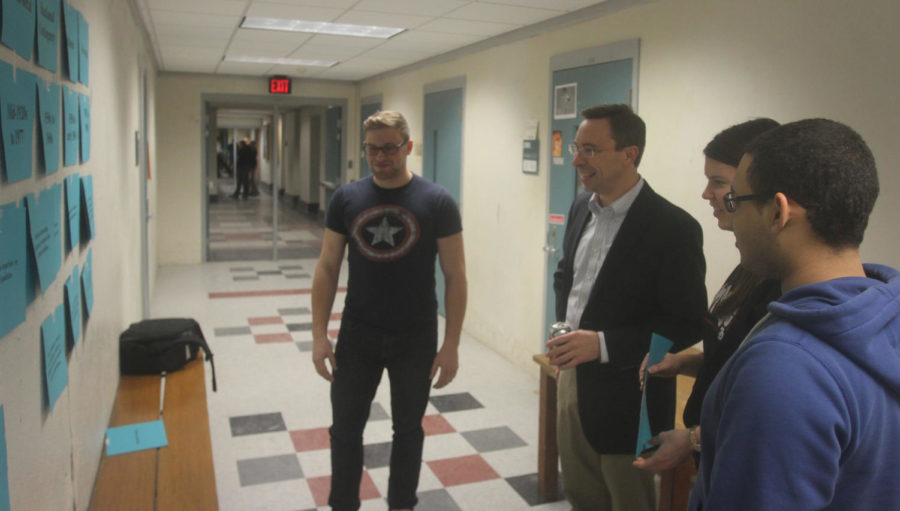Leadership program experiences increased enrollment
February 14, 2014
The Community Leadership and Public Service program has seen a substantial increase in student enrollment for 2013.
While only seven new students enrolled in the program in the fall of 2012, in the spring 2013 semester, 35 students enrolled in the program throughout the six colleges.
Faculty senate and the administration approved the certificate program in the fall of 2008.
“They realized there was a need on campus to recognize that students were learning leadership skills and that they needed to encourage students to learn these skills intentionally,” said Clint Stephens, scholar-in-residence for leadership education for the Catt Center.
The program requires students to complete 21 credits from eligible courses, nine of which cannot be used for other requirements.
The leadership certificate requires three core classes, one communication class, two elective classes and a capstone experience, which can be tailored to a student’s own needs.
There are more than 50 eligible electives for students to choose from, including communication, engineering, political science, sociology and more.
“The leadership certificate is designed to work with all majors across campus and to complement all of those majors,” Stephens said.
And complementing their major is why many students are enrolled in the program.
Jacob Sheets, sophomore in civil engineering, believes that learning how to be a better leader will be valuable to his future.
“I enrolled in the program to learn about leadership, and because it’s characteristic that engineers, in particular, aren’t taught about that often,” Sheets said.
Both faculty and students believe that acquiring the leadership certificate will help them in the job market.
Dianne Bystrom, director of the Carrie Chapman-Catt Center, said that the program is a bonus for students looking for a job and that many employers are interested in the program.
“Employers want to hire people who have an appreciation of these skills — communication, collaboration, leadership, an understanding of an organization — and I think that our leadership certificate provides that,” Bystrom said.
Margaret Elleby, senior in communication studies, would like a future in human resources and believes the program will be beneficial for learning to lead different people.
“I think it’ll help management wise, to help manage different types of people in an organization,” Elleby said.
Some students are a lot closer to completing the program requirements than they think. Because of the variety of elective classes, Elleby has already satisfied many of the prerequisites and only has three classes to complete before she earns the certificate.
Some students enrolled after learning about the program through their adviser or from Stephens, who visits campus organizations and orientations.
Many of the students enrolled are endorsing the program themselves, saying that it is a valuable experience because of the information learned and their classroom experiences.
“I firmly believe that leadership is something that can be learned but that we as educators have to create an environment and an experience for that learning to happen,” Stephens said.
Stephens, who instructs liberal arts and science 322 classes, encourages constant interaction among students and group discussions. He also uses a Twitter page, plays music regularly and has students do different activities, inside the classroom and out.
“The class is learning-oriented but every student learns differently, so there’s always a wide variety of insights found in the classes,” said Peter Ampe, junior in political science and a teaching assistant for liberal arts and science 322.
Due to increased enrollment, the program will be adding new courses to be used for the curriculum, as well as staff to help accommodate the increases.
Among the new courses being added, starting in the summer of 2015, a global leadership study abroad course, offered through the Catt Center, will be added to the curriculum to satisfy the program’s capstone requirement.
Anyone interested in learning more about the Community Leadership and Public Service program can contact Clint Stephens at the Carrie Chapman-Catt Center.

















